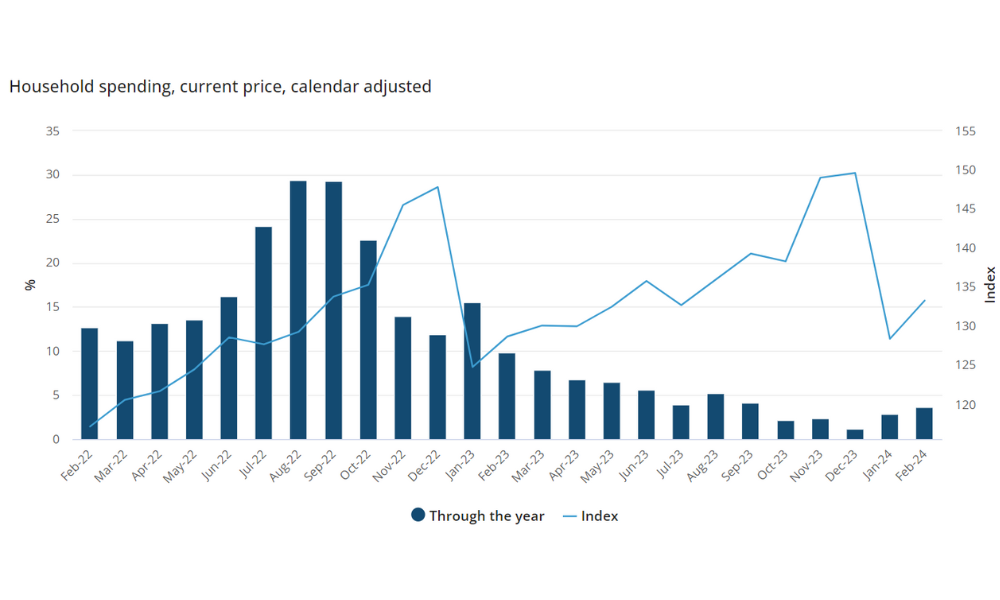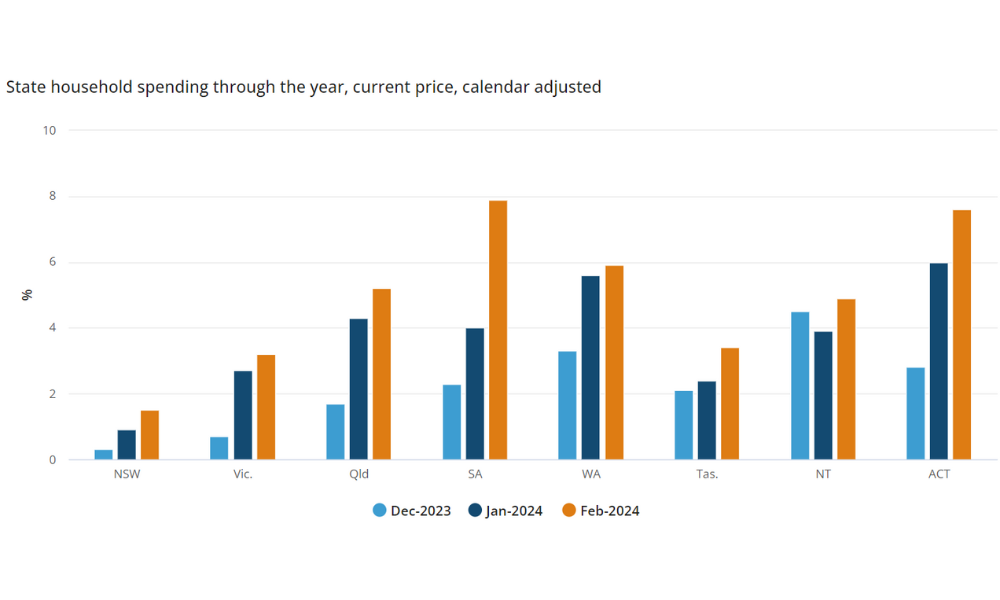

ABS has reported a 3.6% increase in household spending over the past 12 months, indicating a rebound from the economic downturn experienced at the end of 2023.
Robert Ewing, ABS head of business statistics, pointed to a gradual recovery.
“Growth in household spending has risen from its low point in December 2023,” he said.

Transportation expenses surged by 12.3%, driven by a 4.1% rise in automotive fuel prices, according to the monthly Consumer Price Index Indicator. The spike in transport costs includes not only fuel but also an uptick in spending on services such as air travel, tours, and cruises.
“Consumers are also spending more on transport services compared to the same time last year,” Ewing said in a media release.
While discretionary spending slightly decreased by 0.2%, essential (non-discretionary) spending jumped by 6.9%. This shift reflects changing consumer priorities in the face of increasing cost-of-living pressures.
Every Australian state and territory witnessed a year-on-year rise in household spending, with South Australia (7.9%) and the Australian Capital Territory (7.6%) leading the pack. Notably, all regions experienced higher growth rates than in January, with South Australia showcasing the most significant jump from 4% in January to 7.9% in February, ABS reported.

For more details, read Monthly Household Spending Indicator, February 2024.
Get the hottest and freshest mortgage news delivered right into your inbox. Subscribe now to our FREE daily newsletter.
